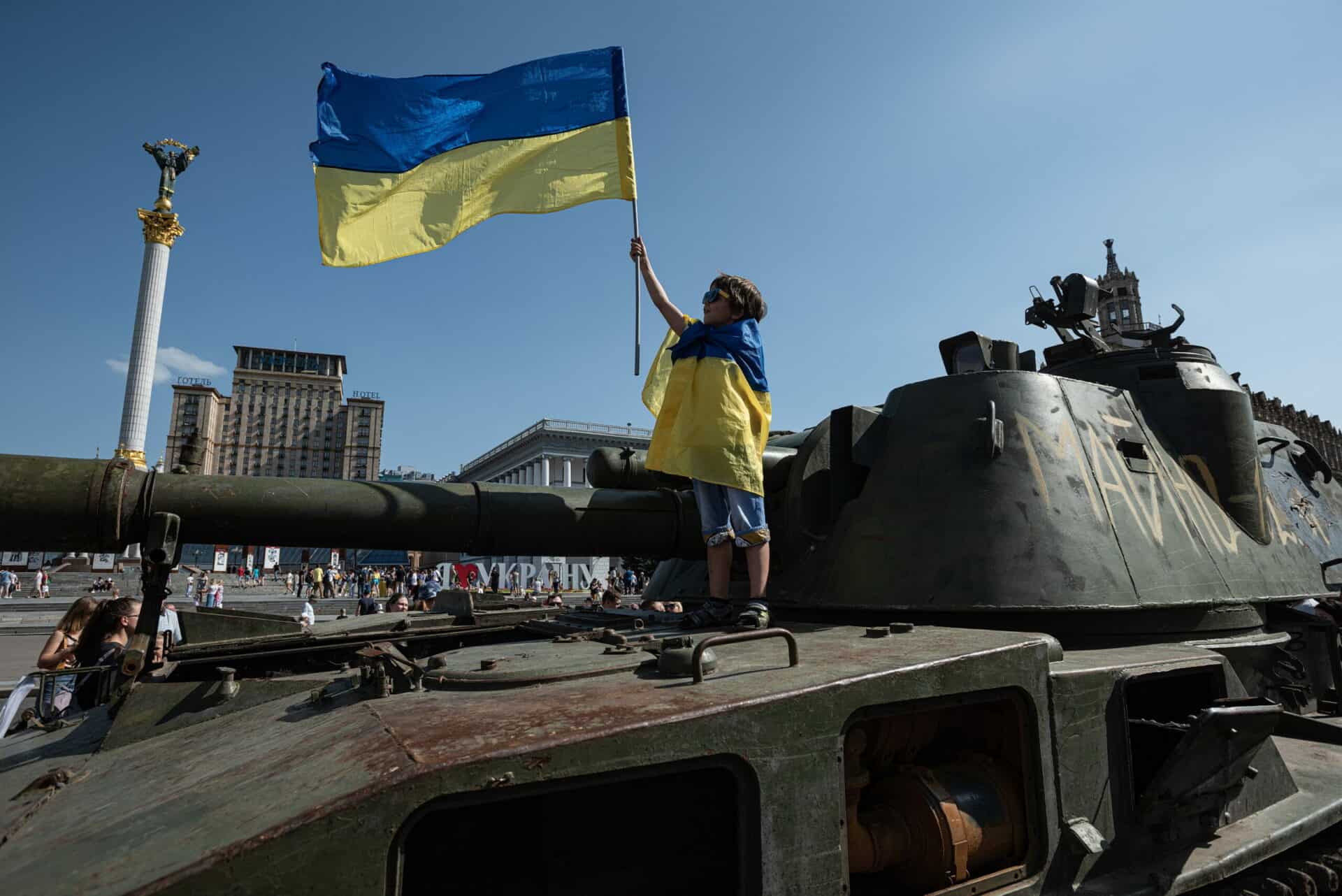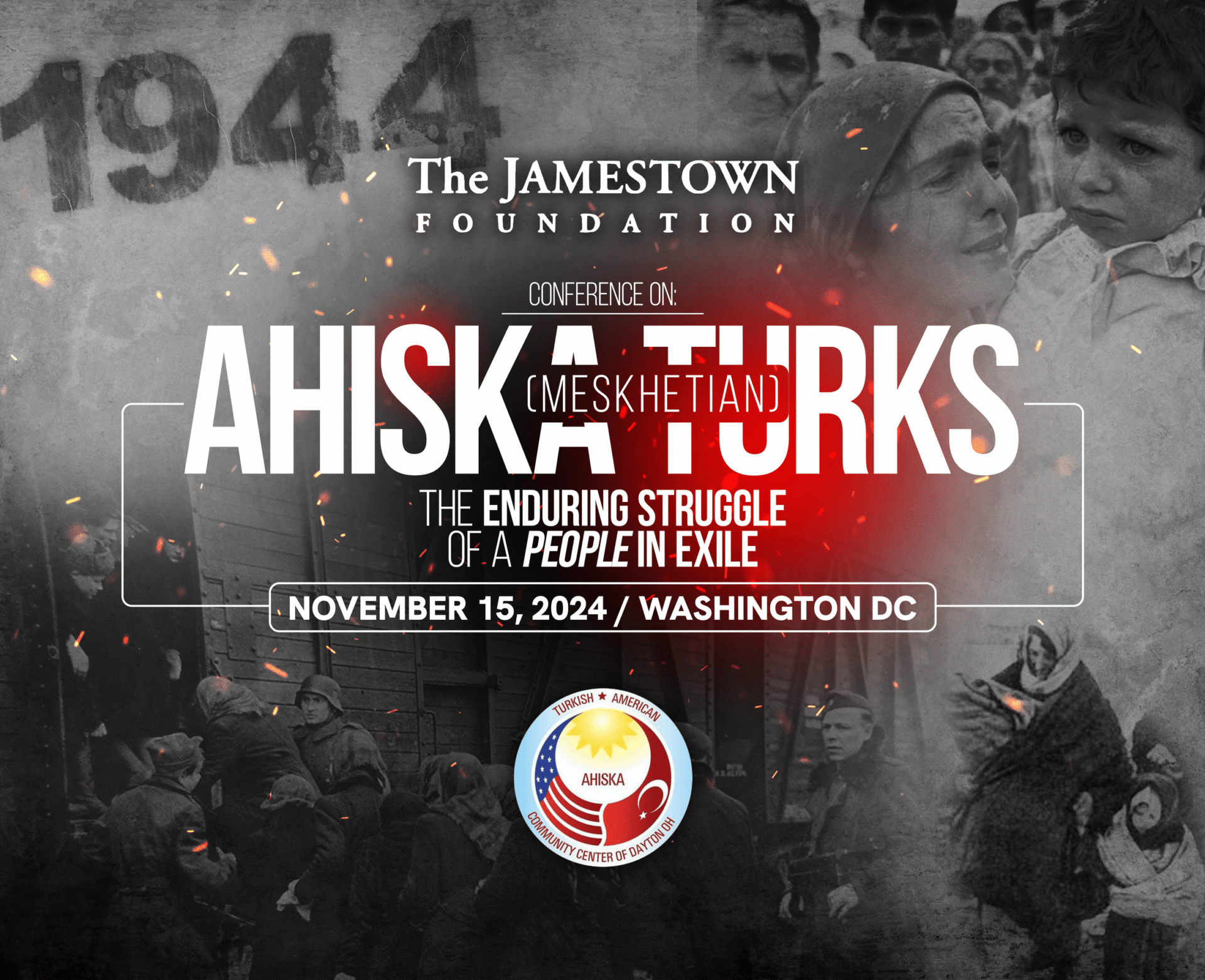
Watch the Video: The War in Ukraine and the Growing Risk of Russia’s Rupture
Watch the Video: The War in Ukraine and the Growing Risk of Russia’s Rupture
On September 29, The Jamestown Foundation hosted the event: “The War in Ukraine and the Growing Risk of Russia’s Rupture.”
Russia’s recent announcement of a “partial mobilization” of its military forces following a devastating Ukrainian counteroffensive in Kharkiv highlights a growing array of domestic problems and challenges plaguing Russian President Vladimir Putin’s mismanagement of the war. Setbacks in Ukraine, a worsening economy, and international sanctions threaten to unleash a domestic backlash inside Russia that may rupture Putin’s hold on power.
Speaker Biographies
Janusz Bugajski is a Senior Fellow at The Jamestown Foundation and formerly a Senior Fellow at the Center for European Policy Analysis (CEPA) in Washington, DC. He is the host of the television show “New Bugajski Hour” broadcast in the Balkans. Bugajski has authored 20 books on Europe, Russia, and trans-Atlantic relations and is a columnist for several media outlets. His recent books include Eurasian Disunion: Russia’s Vulnerable Flanks (with Margarita Assenova) (2016); Conflict Zones: North Caucasus and Western Balkans Compared (2014); Return of the Balkans: Challenges to European Integration and U.S. Disengagement (2013); and Georgian Lessons: Conflicting Russian and Western Interests in the Wider Europe (2010). His newly released book published by the Jamestown Foundation is entitled: Failed State: A Guide to Russia’s Rupture.
Bugajski has been a consultant for the U.S. Department of Defense, the U.S. Agency for International Development (USAID), and a course chair for South Central Europe Area Studies at the Foreign Service Institute, U.S. Department of State. He has testified before several Congressional Committees, including: Helsinki Commission, Senate Foreign Relations, Senate Armed Services, House Foreign Affairs, and House Defense Appropriations. He is also a columnist or contributor to media outlets in the United States, the United Kingdom, Albania, Bosnia-Hercegovina, Bulgaria, Croatia, Georgia, Kosova, and Ukraine.
Dr. Pavel K. Baev is a nonresident senior fellow in the Center on the United States and Europe at The Brookings Institution and a research professor at the Peace Research Institute Oslo (PRIO). He specializes in Russian military reform, Russia’s conflict management in the Caucasus and Central Asia, and energy interests in Russia’s foreign and security policies, as well as Russia’s relations with Europe and NATO.
Baev graduated from the Moscow State University in 1979 with a master’s degree in political geography, and worked in a research institute in the former USSR Ministry of Defense. After receiving a doctorate in international relations from the Institute for the U.S. and Canadian Studies, Moscow in 1988, he worked with the Institute of Europe in Moscow until October 1992, when he joined PRIO. From 1995 to 2001 he was a co-editor of Security Dialogue, a quarterly policy-oriented journal produced at PRIO. From 2000 to 2004, Pavel was the head of the Foreign and Security Policies program. He held the NATO Democratic Institutions Fellowship from 1994 to 1996.
Baev is the author of several books, including “The Russian Army in a Time of Troubles” (SAGE, 1996) and “Russian Energy Policy and Military Power: Putin’s Quest for Greatness” (Routledge, 2008). Some of his most recent reports include “The limits of authoritarian compatibility: Xi’s China and Putin’s Russia,” Brookings Institution, 2020; “The Iranian Revolution at Forty” (with Suzanne Maloney et al), Brookings Institution, 2020; “Transformation of Russian Strategic Culture: Impacts from Local Wars and Global Confrontation,” French Institute of International Relations, 2020; “Russia’s Syrian Predicament Grows Unmanageable,” PONARS Eurasia Memo, 2020; “New Perspectives on the Black Sea Theater in Russian Strategic Culture,” George C. Marshall European Center for Security Studies, 2019; “Russian Nuclear Modernization and Putin’s Wonder-Missiles: Real Issues and False Posturing,” French Institute of International Relations, 2019; and “An ambiguous partnership: The serpentine trajectory of Turkish-Russian relations in the era of Erdoğan and Putin” (with Kemal Kirişci), Brookings Institution, 2017.
Dr. Andrei Illarionov is a Senior Fellow of the Center for Security Policy (Washington), President of the Institute of Economic Analysis (Moscow), and Head of the Program at the Ukrainian Institute for the Future (Kyiv). Dr. Illarionov was Chief Economic Advisor to Russia’s President Vladimir Putin as well as advisor to Russia’s Prime Ministers Yegor Gaidar and Victor Chernomyrdin. Dr. Illarionov was a leading author of the economic strategy that brought Russia 7% annual average economic growth. He was also the architect that doubled Russia’s GDP and more than doubled income of population within a decade. Under his leadership as a Russian Sherpa in the G-8 Russia became a full-fledged member of the G-8 club.
Following his public service in the Russian Federation (1993-1994 and 2000-2005), Illarionov became an outspoken critic of the Kremlin’s economic and social policies, advocating for an open society and democratic capitalism. He joined the Cato Institute shortly afterwards in 2006 and was a senior fellow at the institute’s Center for Global Liberty and Prosperity until 2021. Illarionov has co-authored several economic programs for Russian governments and has written three books and more than 300 articles on Russian economic and social policies. He received his PhD from St. Petersburg University in 1987.


